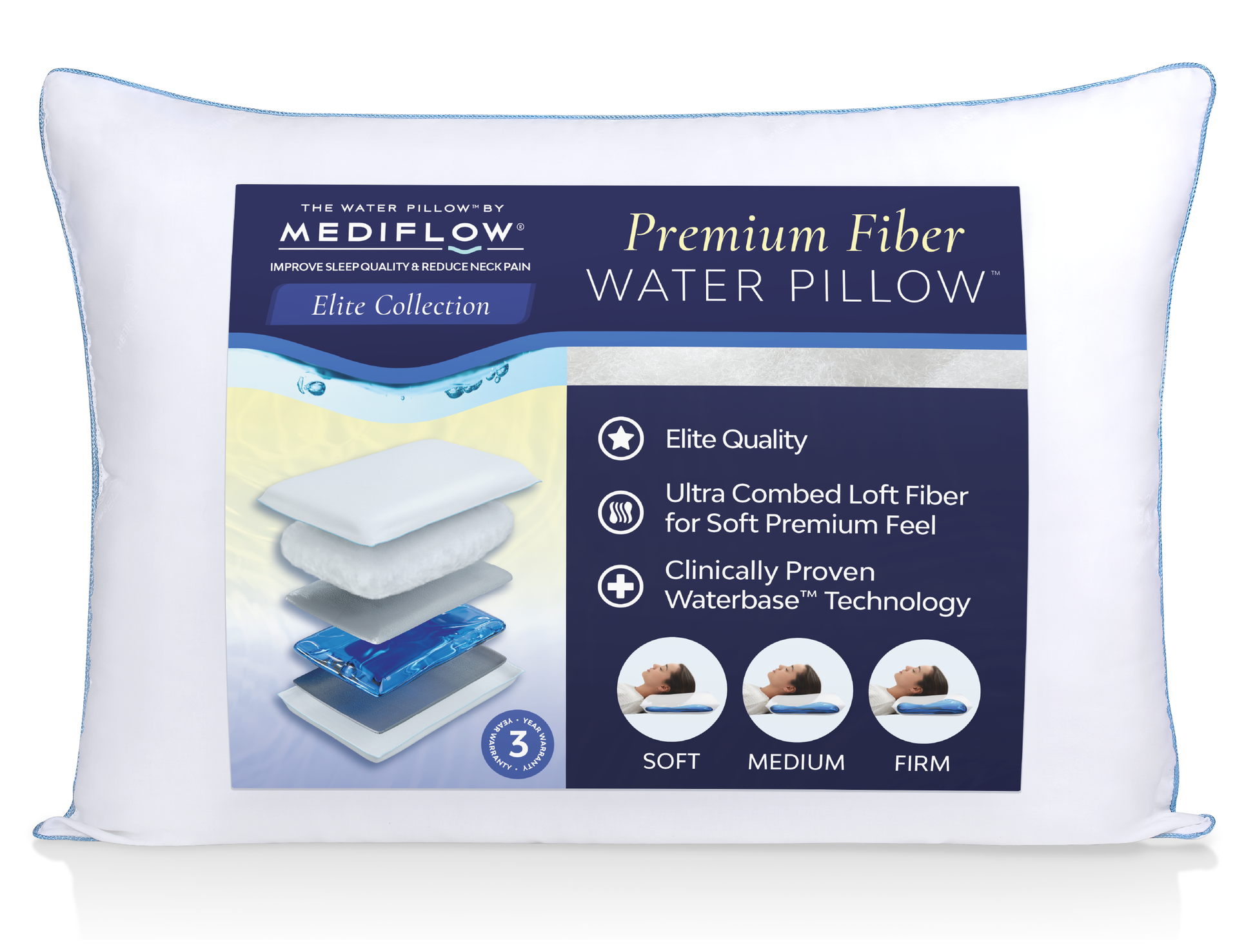Firm pillows offer better support, while soft pillows provide more comfort. But which is better for neck pain?
Neck pain can ruin your day and disturb your sleep. Choosing the right pillow can make a big difference. Some people find relief with firm pillows. Others swear by soft ones. Firm pillows keep your neck aligned, reducing strain. Soft pillows mold to your shape, offering gentle support.
Both have their benefits, but which one is truly better for neck pain? Understanding their differences can help you make an informed choice. Let’s explore how each type affects neck pain and find the best option for you.
Introduction To Neck Pain And Pillows
Neck pain is a common issue that affects people of all ages. It can be caused by various factors including poor posture, injuries, or underlying health conditions. One significant factor that influences neck pain is the type of pillow you use. Choosing the right pillow can make a big difference in alleviating discomfort and promoting better sleep.
In this blog post, we will explore the common causes of neck pain and the role that pillows play in providing neck support.
Common Causes Of Neck Pain
Several factors can contribute to neck pain. Understanding these causes can help you find effective solutions.
- Poor Posture: Sitting or standing with poor posture puts strain on the neck muscles.
- Injuries: Whiplash or sudden movements can cause neck injuries.
- Health Conditions: Arthritis or degenerative disc disease can lead to chronic neck pain.
Identifying the root cause is the first step towards finding relief.
Role Of Pillows In Neck Support
Pillows are essential in maintaining proper neck alignment while you sleep. They help support the natural curve of your neck and spine.
Here are some key roles that pillows play in neck support:
- Alignment: A good pillow keeps your head aligned with your spine.
- Comfort: It provides a comfortable surface for your head and neck.
- Pressure Relief: It reduces pressure points that can cause pain.
Choosing between a firm or soft pillow depends on your sleeping position and personal preference. Consider trying different types to find the best fit for you.
| Type of Pillow | Best For | Benefits |
|---|---|---|
| Firm Pillow | Back Sleepers | Provides strong support and maintains alignment. |
| Soft Pillow | Stomach Sleepers | Offers gentle support and reduces strain. |
By understanding the role of pillows, you can make an informed decision that helps reduce neck pain and improves your sleep quality.
Benefits Of Firm Pillows
Firm pillows offer several benefits for neck pain sufferers. They provide excellent support and maintain their shape over time. This makes them a popular choice for many. Let’s dive into the key benefits of using firm pillows.
Support For Spine Alignment
Firm pillows help keep your spine aligned. This is crucial for reducing neck pain. They hold your head at the right height. This prevents strain on your neck muscles. A well-aligned spine also helps you sleep better. Proper support can make a big difference in how you feel each morning.
Durability And Longevity
Firm pillows are known for their durability. They maintain their shape longer than soft pillows. This means they provide consistent support night after night. A durable pillow is a good investment. You won’t need to replace it as often. Long-lasting support can improve your sleep quality over time.
Drawbacks Of Firm Pillows
Firm pillows may seem like a good choice for neck support. Yet, they come with some drawbacks. Understanding these can help you make a better decision for your neck health.
Potential Discomfort
Firm pillows can cause discomfort. They might not contour well to your neck and head. This can lead to pressure points. These points can cause pain and disrupt your sleep.
Some people find firm pillows too hard. This can make it hard to relax. Over time, this can lead to more neck pain. Soft pillows might be a better option for these individuals.
Suitability For Different Sleep Positions
Firm pillows are not suitable for all sleep positions. For side sleepers, they may provide the needed support. But for back or stomach sleepers, they can cause issues.
Back sleepers need a pillow that supports the natural curve of their neck. A firm pillow may push the head too far forward. This can lead to strain and pain.
Stomach sleepers require a very thin pillow. A firm pillow can elevate the head too much. This can result in neck and spine misalignment.
Here’s a quick table to show suitability:
| Sleep Position | Firm Pillow Suitability |
|---|---|
| Side Sleeper | Good |
| Back Sleeper | Poor |
| Stomach Sleeper | Very Poor |
In summary, the suitability of a firm pillow depends on your sleep position. Consider these points carefully to avoid neck pain.

Benefits Of Soft Pillows
Neck pain can disrupt your sleep and daily life. Finding the right pillow can make a big difference. Soft pillows offer unique benefits. They can enhance comfort and support. Let’s explore why soft pillows might be the perfect choice for you.
Comfort And Cushioning
Soft pillows provide a gentle surface. This can help reduce pressure on your neck. The cushioning effect of soft pillows cradles your head. This can lead to a more restful sleep. A soft pillow molds to the shape of your neck and head. This means fewer chances of waking up with a stiff neck.
Flexibility And Adaptability
Soft pillows are flexible. They can easily adjust to different sleeping positions. This adaptability helps in providing constant support. Whether you sleep on your back, side, or stomach, soft pillows can conform to your needs. The ability to mold into various shapes offers personalized comfort.
Drawbacks Of Soft Pillows
Choosing the right pillow can significantly impact neck pain. Soft pillows, while comfortable, may not always be the best option. They have several drawbacks that could exacerbate neck pain. Here, we discuss two major drawbacks of soft pillows: lack of support and shorter lifespan.
Lack Of Support
Soft pillows often fail to provide adequate neck support. They can collapse under the weight of your head. This leads to improper neck alignment. Improper alignment can cause increased strain on your neck muscles. Soft pillows may lead to discomfort and worsen neck pain over time.
Shorter Lifespan
Soft pillows tend to wear out quickly. Their materials compress and lose shape faster. This results in frequent replacement needs. Over time, this can become costly. The shorter lifespan also means less consistent support. This can contribute to ongoing neck pain issues.

Factors To Consider When Choosing A Pillow
Choosing the right pillow can greatly impact your neck pain. Several factors play a role in finding the perfect pillow for you. This section delves into the essential aspects to consider.
Sleeping Position
Your sleeping position affects the type of pillow you need. Side sleepers require more support for neck alignment. Back sleepers benefit from medium-firm pillows. Stomach sleepers need softer, thinner pillows to avoid neck strain. Match your pillow to your sleeping position for optimal comfort.
Personal Preferences
Personal comfort is key when choosing a pillow. Some people prefer a firm pillow for solid support. Others find a soft pillow more comfortable. Consider what feels best to you. Test different pillow types to see what suits you. Your comfort matters most in reducing neck pain.
Material And Fill Types
Pillows come in various materials and fills. Memory foam pillows offer good support and contouring. Latex pillows are durable and hypoallergenic. Feather and down pillows provide softness and adjustability. Synthetic fills are budget-friendly and easy to maintain. Choose a pillow material that aligns with your comfort and health needs.
Expert Recommendations
Choosing the right pillow can significantly affect neck pain. Experts provide valuable insights to help you decide between firm and soft pillows. Let’s dive into their recommendations.
Advice From Chiropractors
Chiropractors emphasize the importance of spine alignment. A pillow that supports your neck helps keep your spine straight. For some, firm pillows offer better support. They maintain their shape and provide consistent support through the night.
Others may find firm pillows too stiff. This can lead to discomfort if the pillow is too high or too low. Chiropractors suggest testing different heights and firmness levels. This helps find the perfect fit for your unique needs.
Chiropractors often recommend memory foam or latex pillows. These materials adjust to the shape of your neck and head. They provide tailored support and help reduce neck pain.
Insights From Sleep Specialists
Sleep specialists focus on sleep quality and comfort. Soft pillows can be more comfortable for some people. They allow your head to sink in, creating a cozy feeling. This can be helpful for those who sleep on their stomachs or sides.
Too soft a pillow can lead to poor neck support. This may cause more pain in the long run. Sleep specialists suggest combining a soft pillow with a firmer one. This creates a balance between comfort and support.
They also recommend considering your sleep position. Back sleepers might prefer medium-firm pillows. Side sleepers often benefit from firmer options. Stomach sleepers usually need softer pillows to avoid neck strain.
Consider adjustable pillows. These allow you to add or remove filling. This way, you can customize the firmness to your liking. An adjustable pillow can be a versatile solution for varied support needs.
Conclusion And Practical Tips
Choosing between a firm or soft pillow for neck pain can be tricky. Each person’s preference and pain level differ. Finding the right balance can improve sleep quality and reduce pain. Below are practical tips to help you decide.
Balancing Comfort And Support
Finding a pillow that balances comfort and support is crucial. A firm pillow provides more support but may feel uncomfortable for some. A soft pillow offers comfort but might not support the neck properly.
Consider the following factors:
- Sleeping position: Side sleepers often need firmer pillows. Back sleepers may prefer medium-firm, while stomach sleepers might opt for softer pillows.
- Neck alignment: Ensure the pillow keeps your neck in a neutral position.
- Material: Memory foam or latex pillows can offer a good balance of comfort and support.
Trial And Error Approach
Using a trial and error approach can help find the best pillow. Start with one type of pillow and monitor how your neck feels. Adjust as needed.
Here’s a simple plan to follow:
- Test a firm pillow for one week.
- Note any changes in neck pain or discomfort.
- If pain persists, switch to a softer pillow.
- Continue to adjust until you find the best fit.
This method may take time, but it ensures you find the best pillow for your needs.
Remember, the right pillow can improve sleep quality and reduce neck pain. Take your time and choose wisely.

Frequently Asked Questions
What Pillow Firmness Is Best For Neck Pain?
Firm pillows provide better support and alignment for the neck. They help maintain a neutral spine position. This can reduce neck pain and discomfort.
Are Soft Pillows Bad For Neck Pain?
Soft pillows can lack the necessary support. They may cause the neck to bend unnaturally. This can lead to increased neck pain.
Can A Firm Pillow Help With Neck Alignment?
Yes, firm pillows help maintain proper neck alignment. They support the natural curve of your spine. This can prevent neck pain.
Do Soft Pillows Cause Neck Stiffness?
Yes, soft pillows can cause neck stiffness. They often fail to provide adequate support. This can lead to muscle strain and stiffness.
Conclusion
Choosing the right pillow can ease neck pain significantly. Both firm and soft pillows offer unique benefits. Firm pillows provide better support for spine alignment. Soft pillows offer comfort and mold to your head’s shape. Your personal preference and sleeping position matter most.
Test different types to find your best fit. Remember, comfort and proper support are key. Prioritize your neck health by selecting the right pillow. Quality sleep impacts overall well-being. Make an informed choice for a pain-free neck.

